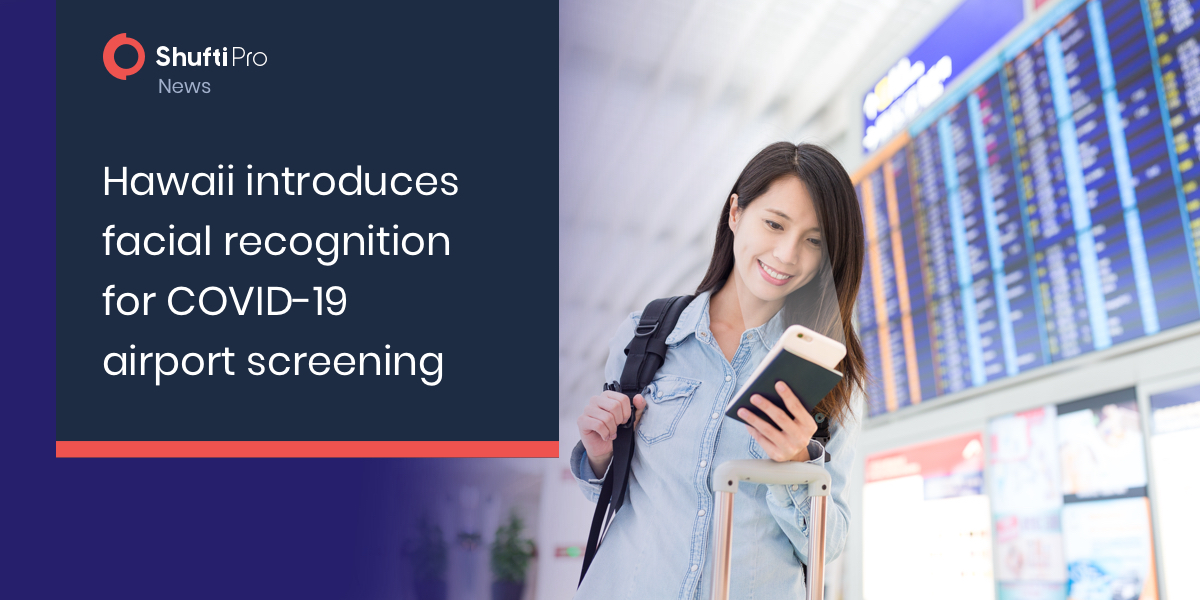Hawaii introduces facial recognition for COVID-19 airport screening

Hawaii transportation authorities on Monday revealed the latest element of their attempts against the COVID-19 pandemic with the addition of facial recognition technology to the thermal screening of travellers entering the country.
The Hawaii Department of Transportation announced that the country’s five main air terminals have installed facial recognition technology that will assist airport employees to pull out travellers who set off the thermal screening cameras introduced for COVID-19. As stated by the state officials and NEC Corporation, the country’s vendor for the airport health inspection, any individual with a body temperature range to be at least 100.4 degrees on the thermal cameras will have their front image taken.
Footage of the software given by NEC presents those front images being sent to an airport, supported by chosen travellers being taken out for a forehead temperature test. Authorities stated that if the forehead check is within a normal limit, the passenger will be permitted to continue; if it verifies what the thermal scans read, the travellers will be taken for a more in-depth medical screening, involving a potential COVID-19 diagnostic test.
“Hawaii persists to perform precautionary measures in response to the COVID-19 and this is one component of a multi-layered procedure intended to reduce the increased coronavirus and guard the health and security of the nation,” Gov. David lge stated in a press release. “ Adopting technology such as the thermal temperature screening and facial imaging equipment will also add efficiency to the passenger verification process and bring Hawaii closer to reaching the new normal at airports.”
The new normal at Hawaii’s airport persists to involve some of the strict entry restrictions in the USA. The country’s Safe Travel program, implemented over the course of COVID-19, requires all passengers to carry a proof of negative test taken within three days of the ending part of their journey, or face a compulsory 10-day self-isolation, regardless of vaccination status. Only vaccinated individuals who received their injections in Hawaii are excluded from the rules.
The country is also in the process of producing a vaccine passport mobile application, which nation CIO Douglas Murdock stated last month to be launched in the summertime. Safety rights activists raised concerns about the air terminal screening prior year as the state initiated installing the thermal cameras and testing facial recognition mechanisms. In a letter to Ige and other administrators last July, the American Civil Union of Hawaii stated that the installation of facial recognition technology in response to COVID-19 was “ inefficient, unnecessary, common for misuse, costly, potentially unconstitutional and “ terrifying.”











